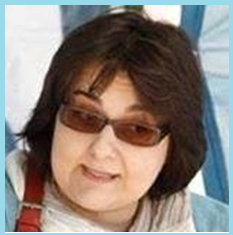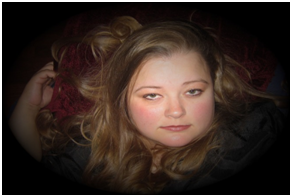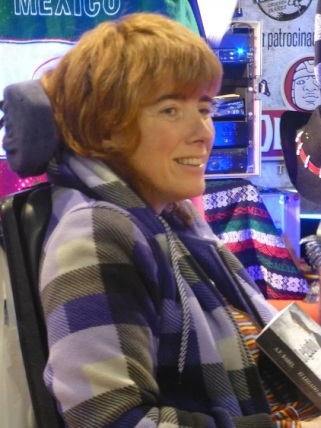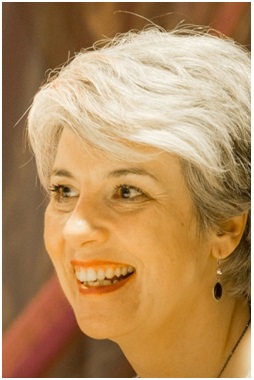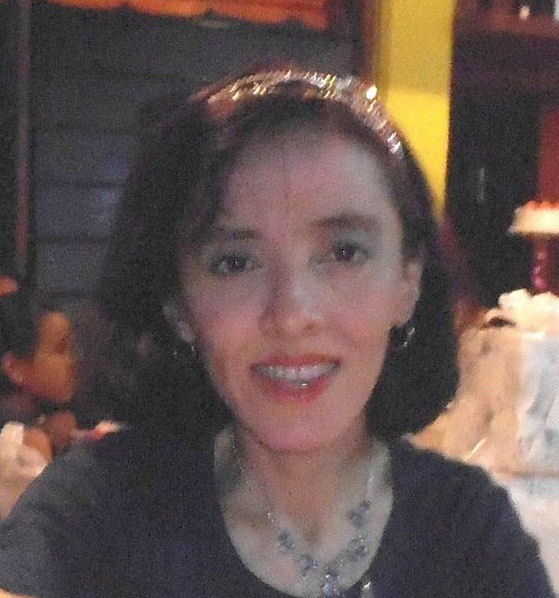Health
Authors on Friedreich’s Ataxia – Fátima d’Oliveira
by Michell Spoden
As part of literacy project with Authors on Friedreich’s Ataxia series, my interviewee today is Fátima d’Oliveira.
Michell: Please tell our readers a little about yourself?
Fatima: My name is Fátima d’Oliveira, I am 44 years old, I am now retired, professionally speaking, due to disability, and I am Portuguese. I also like to write, and I am fortunate enough to have seen some of my work already published, but I do not like to call myself a writer, for I believe that would be far too pretentious. I also have two blogs: http://aprocuradeumahistoria.blogspot.pt, where I share my literary work – mainly short stories – and http://recatratos.blogspot.pt, where I talk about myself, my ideas and feelings.
Michell: Please let our viewers know about how you decided to join this project?
Fatima: I came across this project through Mari Luz Gonzaléz; she was the one who first talked to me about this idea presented by Maria Blasco Gamarra, a Spanish author and the true driven force behind this project. And as Mari Luz already knew some of my work, she asked me if I was interested in joining in. Needless to say, I immediately jumped on board.
Michell: There is something similar with each of the writers for this project. What is that?
Fatima: All the writers are, in one way or another, touched by a debilitating and progressive disease, called Friedreich’s ataxia (FA). As for me, I have FA. FA it is a rare and neurodegenerative disease. It is genetic and hereditary, but it can skip up to several generations. Thus, genetic tests are very important. It is a cruel and relentless disease, which slowly takes away our ability to move, speak, even swallowing. It may leads to a total dependence and shortens our life span. But one thing it does not affect: our mind – our knowledge, thoughts, wishes, hopes, dreams, fears and feelings remain. This means that we know and are aware of what is happening to us. There is still no cure or treatment for FA.
Michell: Your group has decided to translate this book into different languages. Please tell us more about that aspect of the project.
Fatima: Yes, that is right. It is a huge task that is only possible due to a wonderful team of translators, all volunteers. This process of translation is being coordinated by Gian Piero Sommaruga. The final objective is to translate the book in each language of the authors. The book is already available in Spanish, and presently is being translated in English.
Michell: Do you believe that this project will lead to other extraordinary events in the future?
Fatima: I truly hope so, not only on the artistic level, but also in spreading the word about FA, raising awareness and funds, desperately needed for research.
Michell: Outside of raising funds for the book for the cause you are currently mediating for; what other humanitarian efforts have those in the group been involved with and why?
Fatima: I am very much involved with APAHE – Associação Portuguesa de Ataxias Hereditárias (http://www.apahe.pt.vu), a Portuguese association for hereditary ataxias, that is trying to raise more awreness for these kind of diseases.
Michell: Since all of you struggle with the same disease, what are the greatest challenges with having it? Is there anything that you would like to share with us that could help us to better understand what we outsiders can do to make a difference?
Fatima: Besides the most obvious ones – the architectural barriers and being constantly dependent on others – I truly believe that the greatest challenge that we have to face, on a daily basis, is the way other people look at us. Let me tell you a story that happened to me and that is a perfect example of what I am saying: some years ago I was in a big bookstore and had several books on my lap. A man passes and looks, first at my lap, then at me. After making a kind of surprised look, he goes away .He did not utter a single word, but his eyes were clear: how can someone in a wheelchair be able to read? That is, in my opinion, the biggest and hardest struggle: the way we are perceived by others. Yes, I am in a wheelchair. But I do have a mind. And a heart.
Michell: What were some of the barriers you ran into during your project? How did you solve the issues?
Fatima: Mostly communication barriers, for as we are all of different backgrounds, sometimes there was some misunderstandings. But with patience and perseverance all was dealt with.
Michell: Did any of you feel you had learned some major lessons? If so what were they?
Fatima: Good things always come to those who are determined and that together we are so much more than the sum of all our parts.
Michell: What are some of the individual’s in the group’s favorite authors?
Fatima: I really cannot say I have a favorite author…You see, for me the most important is the book, the work, not the name behind it. At the moment, I’m reading two books, both by Portuguese authors: “900 anos a irritar os espanhois” (900 years annoying the Spanish) by Margarida de Magalhães Ramalho and “A Terceira Rosa” (The Third Rose) by Manuel Alegre. But I will tell you this much: as I have a kind of passion for short stories, I will single out what is for me the best short story I ever read: it was written by Joyce Carol Oates and it is called “Extenuating Circumstances”.
Read Susan Allen Carter’s Interview about international literacy project against Friedreich’s Ataxia.

